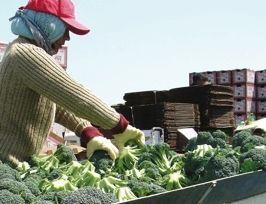
The Produce Marketing Association (PMA) has called for the Food and Drug Administration to work together with the fresh produce industry to establish commodity-specific, risk-based food safety regulations for certain fresh produce items and supported the agency’s proposal that it act as a third-party auditor accreditor.
Commenting on the Food and Drug Administration’s Food Protection Plan, which seeks to improve food safety through three key elements – prevention, intervention and response, the PMA called on the agency to work together with the produce industry to develop new safety protocols.
“We stand by our previous recommendations for the FDA to establish, or partner with the produce industry to create a globally recognised food safety standard,” said Kathy Means, the PMA’s vice president of government relations and public affairs. “We want to assure that the agency incorporates the industry’s earlier efforts to develop commodity-specific food safety programmes based on best current science, and grounded on the principles of risk assessment and risk management.”
Ms Means said every company throughout the fresh produce supply chain is responsible for food safety aligning with the plan’s prevention element. “Specifically, we have called on the FFDA to develop mandatory Good Agricultural Practices for industry use that apply to US and imported foods, are commodity-specific and risk- and science-baesd, and allow for regional variations,” she said.
The PMA also agreed that the agency’s intervention focus should be on prioritised risk-based surveillance to conserve financial and human resources. To do so, the association recommended using the best technologies, standardised protocols and a third-party accreditation inspector system.
“The last of the plan’s elements, response, is key,” Ms Means continued. “In the event of a foodborne illness outbreak, such as the one we witnessed with salmonella Saintpaul this summer, the speed of an investigation relies on the competence, capacity and standardisation of information. Delays in reporting and misinformation do not only hinder the investigation, but also the confidence of consumers in the healthy, delicious produce they eat.”



